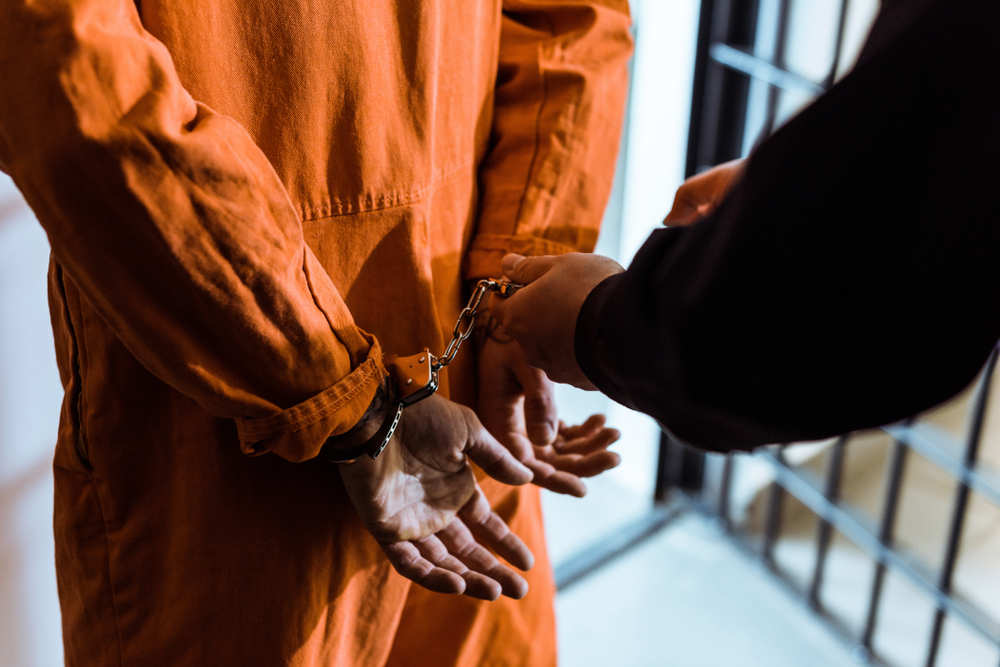Popular culture often depicts prisoners as effectively having no rights at all. Guards and inmates alike often get away with various forms of abuse and neglect in films and other media.
This is partially true. Prisoners in the United States do temporarily lose some of their rights while incarcerated, and forms of inmate abuse frequently happen in U.S. prisons. Even afterward, individuals convicted of crimes only regain some (but not all) of their rights back.
However, prisoners in the U.S. still retain several fundamental civil liberties and rights while under arrest or in prison. If these rights are violated, prisoners might be able to seek compensation in an inmate abuse case.
Below, we’ll cover prisoner’s fundamental rights while incarcerated, as well as some of those they do not have.
Rights That Inmates Retain
The Eighth Amendment
The Eighth Amendment reads as follows:
“Excessive bail shall not be required, nor excessive fines imposed, nor cruel and unusual punishments inflicted.”
Prison staff assaulting inmates or even knowing about an assault between inmates but not reporting it (among other things) are often in violation of the Eighth Amendment’s cruel and unusual punishment.
Cruel and unusual punishment extends to the facilities in which pre-trial prisoners are kept, as well. Prisoners must be provided “humane facilities.” For instance, a vermin-infested, decrepit old prison would not be considered “humane,” thus potentially qualifying as cruel and unusual punishment.
Similarly, the Eighth Amendment provides justification for the presumption of innocence, as prisoners can post bail in most cases.
The Fifth and 14th Amendments
The Fifth Amendment provides pre-trial prisoners with due process. The 14th Amendment reiterates that this applies to all people born or naturalized in the U.S. and states that no one will be denied equal protection under the law.
That Equal Protection clause protects prisoners from any form of discrimination, such as based on race, sex, or religion — unless doing so would clearly violate their safety.
Related: Numbers of women behind bars are soaring, report says
Additionally, courts have ruled that female inmates’ facilities, programs, and privileges must be substantially equivalent to male inmates.
Other Federal Rights
Most federal rights that apply to certain protected individuals also apply in prison. For example, an inmate with a disability is still protected under the Americans With Disabilities Act (ADA) and thus should be provided adequate facilities.
Rights That Inmates Do Not Retain
The First Amendment (Partial)
Inmates keep some (but not all) First Amendment rights. For instance, their freedom of religion remains intact. In fact, prisons must provide adequate accommodations for prisoners to practice their religion. There are certain restrictions on specific aspects, like religious items one can possess, but they cannot completely restrict religious practice.
That said, prisoners lose a lot of freedom of speech. In particular, they lose free speech rights to the degree that such speech could otherwise prevent order and security in the prison.
Prison officials are allowed to open incoming mail to check for contraband — as long as they do it in front of the inmate. Additionally, they can’t read the email’s contents. They can only check for contraband within the package or envelope. This is related to Fourth Amendment issues for inmates.
The Second Amendment
Prisoners do not have the right to bear arms while in prison for obvious reasons. Additionally, some misdemeanors and all felonies typically bar the inmate from purchasing or owning firearms upon release.
There are some cases where these rights may be restored federally once the inmate is released. However, individual states may have their own laws.
The Fourth Amendment
The Fourth Amendment typically protects against any searches and seizures deemed unreasonable under the law. However, the Supreme Court ruled in 1984’s Hudson v. Palmer that inmates have virtually no Fourth Amendment rights. The reason is that prisoners have no reasonable expectation of privacy in prisons and that prison authorities need to access and search prison cells for security reasons.
Violation’s of Prisoner’s Rights
Prison abuse — thus, rights violations — are rampant in the U.S. prison system. However, at the same time, many prisoners don’t realize they may be able to take legal action because they aren’t fully aware of the rights they retain while incarcerated.
If you believe your rights were violated as an inmate, or you know someone who has gone through such an experience, you should contact an inmate abuse attorney right away. You can seek compensation for the rights violations and play a part in improving the U.S. prison system.










